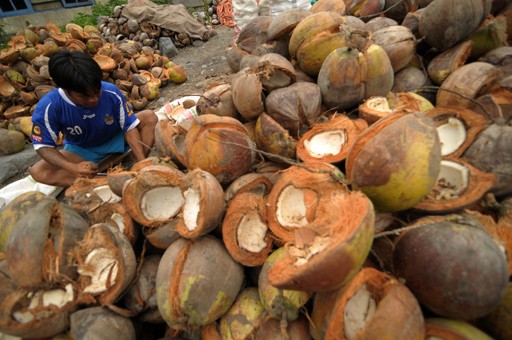Popular Reads
Top Results
Can't find what you're looking for?
View all search resultsPopular Reads
Top Results
Can't find what you're looking for?
View all search resultsIndonesian coconut enjoys sweet spot in Hungary
Change text size
Gift Premium Articles
to Anyone
Hungarian businesses have urged their Indonesian counterparts to export more coconut products to their country.
“Today’s coconut supplies from around the world, including Indonesia, don’t meet demand in Hungary and other countries in central and eastern Europe,” said Hungarian businessman Adam Kapas, whose company Mayers Kft is a major Indonesian coconut importer.
“The high demand [for coconut products] and short supplies lead to continuing increases in price, especially for coconut oil, which increased between 7 and 10 percent each month in 2016,” he added.
Adam estimates that Hungary needs 1.5 million liters of coconut milk and 500,000 liters of coconut oil per year. His firm supplies 700,000 liters of coconut milk annually to the domestic market.
(Read also: Association calls for moratorium on raw coconut exports)
Indonesian coconut exports to Hungary include coconut cooking oil, desiccated coconut, coconut water, coconut cream, coconut milk and coconut sugar.
Trade Ministry data show that coconut product exports saw healthy growth in past years. Export value increased nearly 15 percent as of October 2016 from the same period in 2015.
In 2015, the value rose 20.7 percent to 2.2 million euro (US$2.3 million) from the previous year.
The Indonesian Agriculture Ministry has allocated Rp 28.1 billion this year to rejuvenate 16,725 hectares of coconut farmland in 20 provinces.
Indonesia saw coconut production decline 5.6 percent to 3 million tons in 2014 mainly due to aging plants. That year, the country had 3.63 million ha of coconut farmland, 98 percent of which was managed by small farmers. (hwa)










